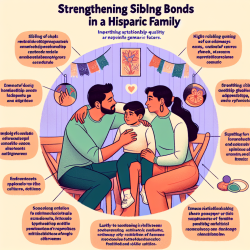Understanding Intersectionality in Policy Analysis
In the realm of health and education, the Intersectionality-Based Policy Analysis (IBPA) Framework offers a novel approach to understanding and addressing complex social issues. This framework, as discussed in the research article "An Intersectionality-Based Policy Analysis Framework: Critical Reflections on a Methodology for Advancing Equity," provides a comprehensive method for analyzing policies with a focus on equity and social justice.
Why Intersectionality Matters
Intersectionality is a critical concept that acknowledges the interconnected nature of social categorizations such as race, gender, and class, which can create overlapping systems of disadvantage. In the context of speech-language pathology and online therapy services like those provided by TinyEYE, understanding these intersections can lead to more effective and equitable outcomes for children.
Applying the IBPA Framework
The IBPA Framework encourages practitioners to consider multiple dimensions of policy contexts, including history, politics, and lived experiences. By doing so, it generates transformative insights and policy solutions that are not possible through traditional equity-focused frameworks.
- Descriptive Questions: These questions help to gather critical background information about policy issues, revealing assumptions and identifying affected populations.
- Transformative Questions: These questions guide the development of alternative policy responses aimed at reducing inequities and promoting social justice.
Enhancing Outcomes for Children
For practitioners working with children, the IBPA Framework can be particularly beneficial. By applying intersectionality, practitioners can better understand the diverse needs of children from different backgrounds and tailor interventions accordingly. This approach ensures that no child is left behind due to systemic inequities.
Encouraging Further Research
While the IBPA Framework provides a robust tool for policy analysis, it also highlights the need for ongoing research and refinement. Practitioners are encouraged to engage with this framework and contribute to its evolution, ensuring it remains relevant and effective in addressing the complex challenges faced by children today.
To read the original research paper, please follow this link: An intersectionality-based policy analysis framework: critical reflections on a methodology for advancing equity.










